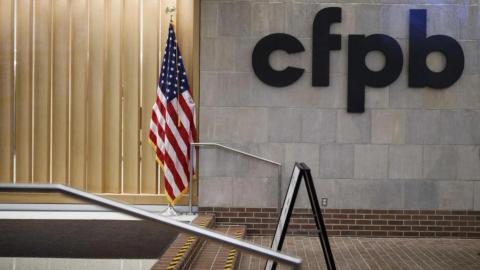
Similar Posts

Trump Initiates Transformation of National Crypto Reserves; Bans CBDC Development
Former President Trump’s recent executive order on digital financial technology highlights the digital asset industry’s role in fostering innovation and economic growth in the U.S. Key components include the formation of a working group tasked with delivering a report on regulatory proposals within 180 days, and the potential creation of a national digital asset stockpile for seized cryptocurrencies. The order also prohibits the development of Central Bank Digital Currencies (CBDCs), reflecting concerns about privacy and their impact on traditional banking. This executive order represents a significant shift in the regulatory landscape for digital assets, balancing innovation with caution.

CFPB Plans to Abandon BNPL Regulations: What It Means for Consumers and the Future of Buy Now, Pay Later
In October, the Financial Technology Association (FTA) filed a lawsuit against the new Buy Now, Pay Later (BNPL) rule to safeguard consumers and BNPL providers. Recently, both the FTA and the Consumer Financial Protection Bureau (CFPB) sought a stay in the case as the CFPB plans to revoke the rule, which could moot the lawsuit. The proposed rule aimed to impose traditional credit card protections on BNPL products, raising concerns about consumer confusion. FTA CEO Penny Lee criticized the CFPB for exceeding its authority. Additionally, the CFPB has seen operational shifts under acting Director Russell Vought since 2020.

One-Third of Central Banks Postpone CBDC Rollouts: What It Means for the Future of Digital Currency
The Federal Reserve’s research on digital currencies faces a setback as former President Trump halts efforts to create a digital dollar through an executive order. This has prompted global scrutiny of central banks’ plans for Central Bank Digital Currencies (CBDCs). A survey by Giesecke+Devrient and Omfif shows that 75% of 34 central banks still plan to issue a CBDC, with 34% expecting to launch within three to five years. However, 15% are less inclined, and 31% have delayed timelines due to legislative issues. Motivations differ: emerging markets aim for financial inclusion, while developed ones focus on monetary sovereignty.

Marlin Acquires Majority Stake in Napier AI: A Game-Changing Investment in AI Technology
Napier AI, a London-based provider of AI-driven financial crime compliance software, is making notable advancements in the banking and asset management industries since its 2015 inception. Specializing in AML screening, the company has partnered with over 100 financial institutions, including HSBC and State Street, to enhance monitoring and regulatory reporting. Recently, Napier AI secured £45 million in funding from Crestline Investors and completed a majority investment from Marlin Equity Partners to boost its market presence through research, development, and global expansion. CEO Greg Watson highlights the necessity of modern solutions in combating evolving financial crime threats.


